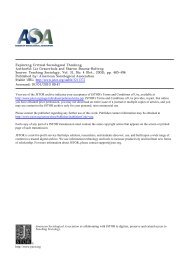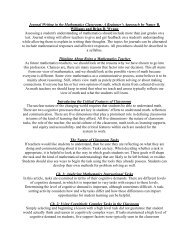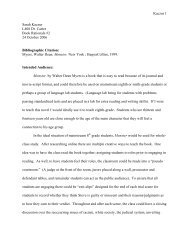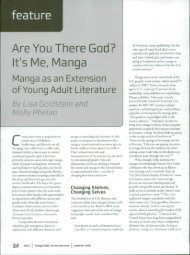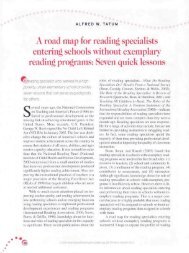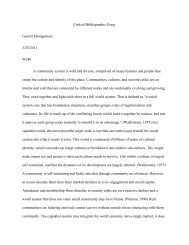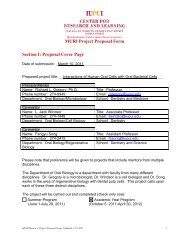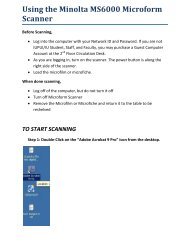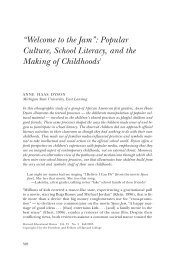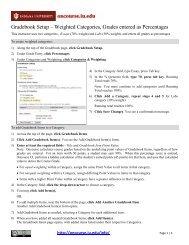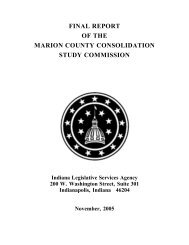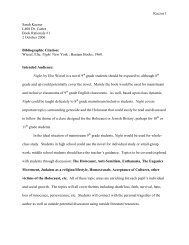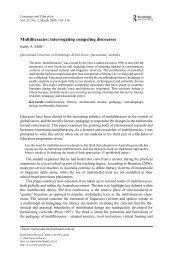Proposal - Oncourse - Indiana University
Proposal - Oncourse - Indiana University
Proposal - Oncourse - Indiana University
You also want an ePaper? Increase the reach of your titles
YUMPU automatically turns print PDFs into web optimized ePapers that Google loves.
interview data, and analyze the quantitatively measured results of the performance of the system.<br />
This opportunity will afford students the opportunity to not only gather and implement research,<br />
but refine it on an ongoing basis; this is a significant benefit to students who frequently leave<br />
projects behind as they progress through the curriculum.<br />
Initially chemistry undergraduates will be summarizing past research in online learning, while<br />
developing hypotheses as to fundamental aspects to be included in the KB. We believe that an<br />
understanding of what makes an effective educational research article will help them design<br />
sound research methods and recognize how tools can be used to solve the above problem. They<br />
will be trained in the (educational) research process: clearly defining and identifying the specific<br />
problem, developing and comparing hypotheses, carrying out the experiment, and evaluating<br />
data gathered from available tools (standardized exams, semester exams, focus group analysis,<br />
survey data, etc.). All undergraduates will have the opportunity to take a training course in<br />
social and behavioral human subject research to help them gain an appreciation for the full scope<br />
of educational research. As far as specific tasks, chemistry undergraduate researchers will be<br />
involved in helping design and conceptualize KB content creation. They will also be involved in<br />
creating assessment tools such as surveys and focus group questions. Finally, they will be<br />
studying collected data from student use of the KB. Information technology students will work<br />
with the chemistry undergraduates to create and execute surveys, analyze the results of<br />
interviews and questionnaires, and demonstrate how to implement the results of this analysis into<br />
functional software components.<br />
In order to effectively communicate with the MURI team, the mentors will facilitate a bi-weekly<br />
meeting to encourage active study of literature, research presentation skills, and a focused<br />
approach toward solving a problem in a group setting. The research group also plans to set up an<br />
<strong>Oncourse</strong>/SharePoint project site to facilitate communication and information transfer between<br />
all group members. This will be a centralized hub for sharing relevant literature and providing<br />
progress reports.<br />
We anticipate that several measurable outcomes will result from this research: 1) a KB will be<br />
developed and enhanced for use as a learning tool in the organic lecture class, 2) student<br />
performance and perception data will allow analysis of research progress and success, 3) students<br />
involved will experience the research process with opportunities to present findings in<br />
educational publications, conferences, and meetings, 4) aspiring educators will be trained in the<br />
objective study of teaching and learning, 5) and students will have hands-on experience working<br />
to resolve a significant concern in the C&CB department.<br />
Research Timeline<br />
Summer 2011 – Full scale pilot of KB (approx. 120 students) in Summer I organic lecture,<br />
results will help direct further content and technology innovations. Analysis of existing software<br />
solutions and development of surveys will begin.<br />
MURI Mentor’s Project <strong>Proposal</strong> Form, Updated: 1-25-2011 6



